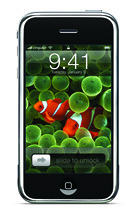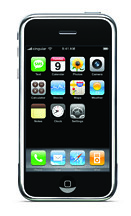
Lauren McClusky, 19, raised more than $30,000 for the Chicago chapter of the Special Olympics by hosting a series of McFest concerts in 2007 and 2008. In 2009, she had to use those funds for attorney fees after McDonald's Corp. laid claim to all things "Mc."
It doesn't matter that McClusky's mark, which was filed in June 2008, and published for opposition in February 2009, bears no resemblance to the golden arches. McDonald's has taken the position that "McFest" is similar enough to the brand name McDonald's and its family of 'Mc' trademarks that it is likely to cause confusion under trademark standards and/or dilute its valuable trademark rights.
Based on the illustrations above, it seems to be a slow day for McDonald's attorneys. Primarily in the last ten years, McDonald's has indeed filed dozens of trademark applications for "Mc" names and various combinations with the letter "M." Many of those names (such as McPick, McMax, MCDTV, McMiracle Field) are all dead; cancelled or abandoned. So what makes this one different?
"We have made several attempts to resolve this matter amicably, because we recognize this event is for charity fund-raising," said Ashlee Yingling, spokesperson for McDonalds, in a statement to NBC Chicago. "We have offered to help the event organizers cover costs in selecting a new name for their event; we have suggested other variations of this word that they could use."
Unrelated names don't dilute brands, but poorly thought out legal action might.
The majority of stories and posts centered on this trademark scuffle are largely negative, especially in Chicago. The Consumerist asks Are all things "Mc," automatically McDonald's? The Chicago Sun-Times points out that McDonald's has deep pockets for a legal fight. And Market Watch might have investors wondering why MCD would waste potential McDividends.
That is not to say all the stories are negative. The Legal Satyricion sides with the corporate claim, arguing that McDonald's has not filed to prevent the name from being used. It merely filed an opposition to McClusky’s attempt to secure a trademark registration for “McFest.” Boo hoo McClusky, they said.
While it is a good point (and I'm not an attorney), the opposition could become boo hoo for McDonald's. A ruling against the opposition, which could happen given McClusky's name also has an "Mc" and she is not entering a competing service (like a restaurant chain), potentially opens the doors for more "Mc" usage, not less.
At minimum, there is that public relations cost to consider. While companies have every right to protect their brands, it seems to me that the only one making the connection that McFest would have anything to do with McDonald's is McDonald's. And now, because of the publicity around the opposition, the company has created the implication that the two are somehow connected. They weren't.
So, legal questions aside, one has to wonder whether McDonald's is diluting its own brand at a time when it is much more prudent to keep focusing on those fourth quarter profits (up 23 percent). It could have been just as easy to allow "MC FEST," which was limited to a company organizing, arranging, conducting, and producing concerts and live events, to peacefully coexist. And, given the charity, McDonald's may have elevated the brand by eventually supporting the teen.














